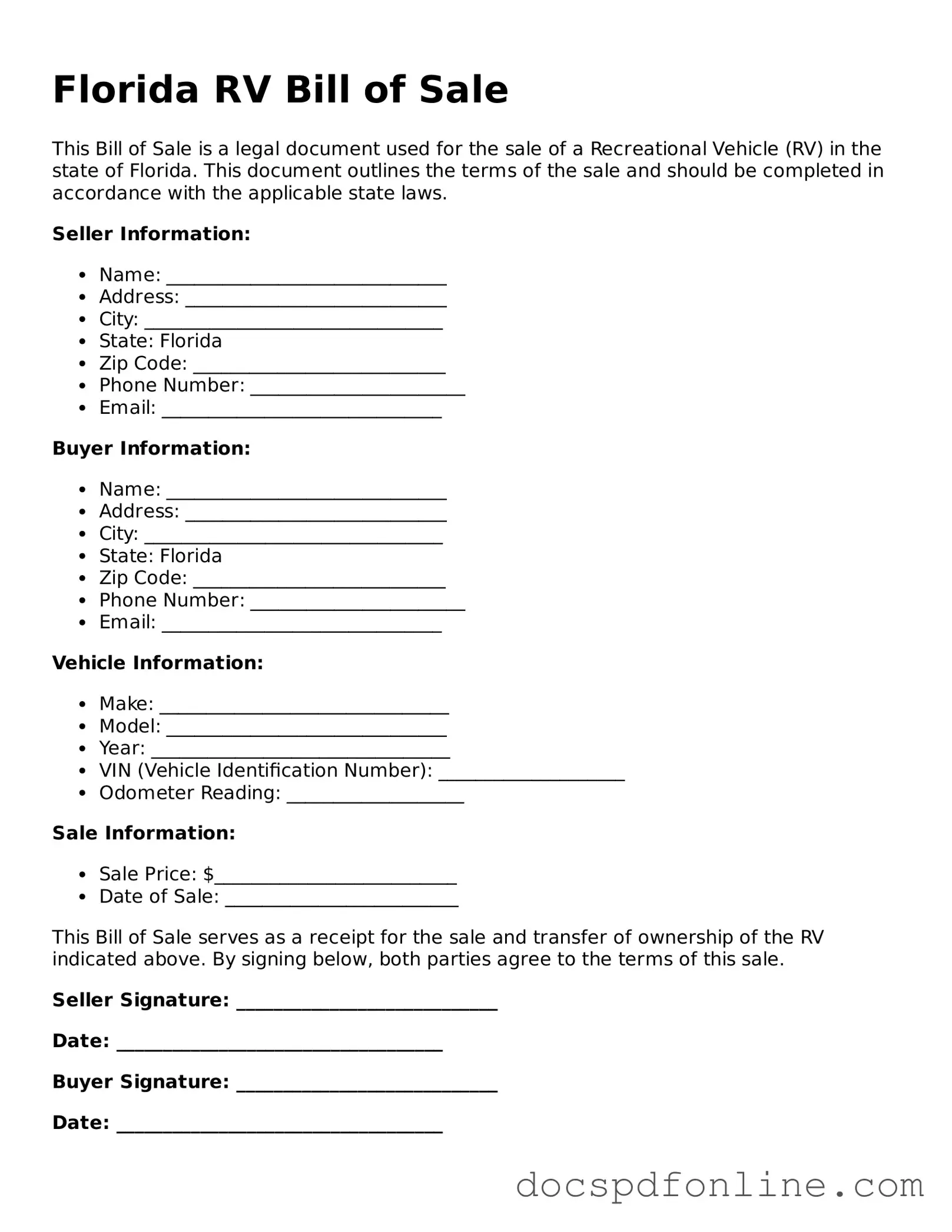Legal RV Bill of Sale Template for Florida
The Florida RV Bill of Sale form is a legal document that records the transfer of ownership of a recreational vehicle from one party to another. This form is essential for both buyers and sellers, as it provides proof of the transaction and details about the vehicle. Understanding the components of this document can help ensure a smooth and legally compliant sale.
Launch Editor Now

Legal RV Bill of Sale Template for Florida
Launch Editor Now
Save time — finish this form fast
Finish RV Bill of Sale online — edit, save, download made easy.
Launch Editor Now
or
↓ PDF File
